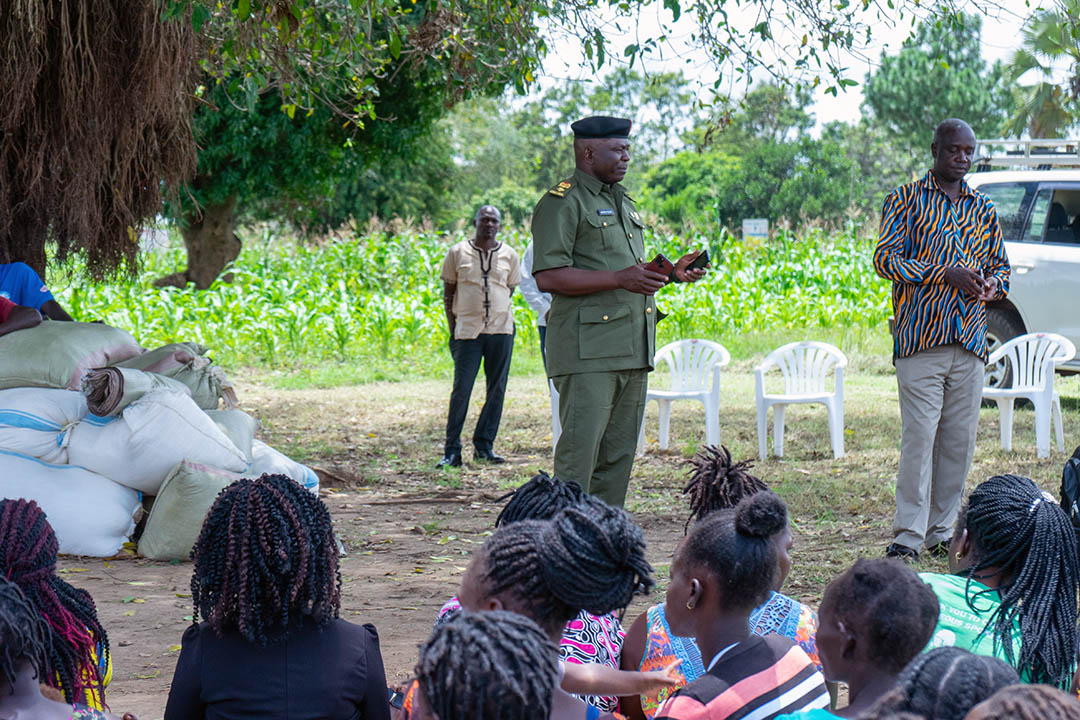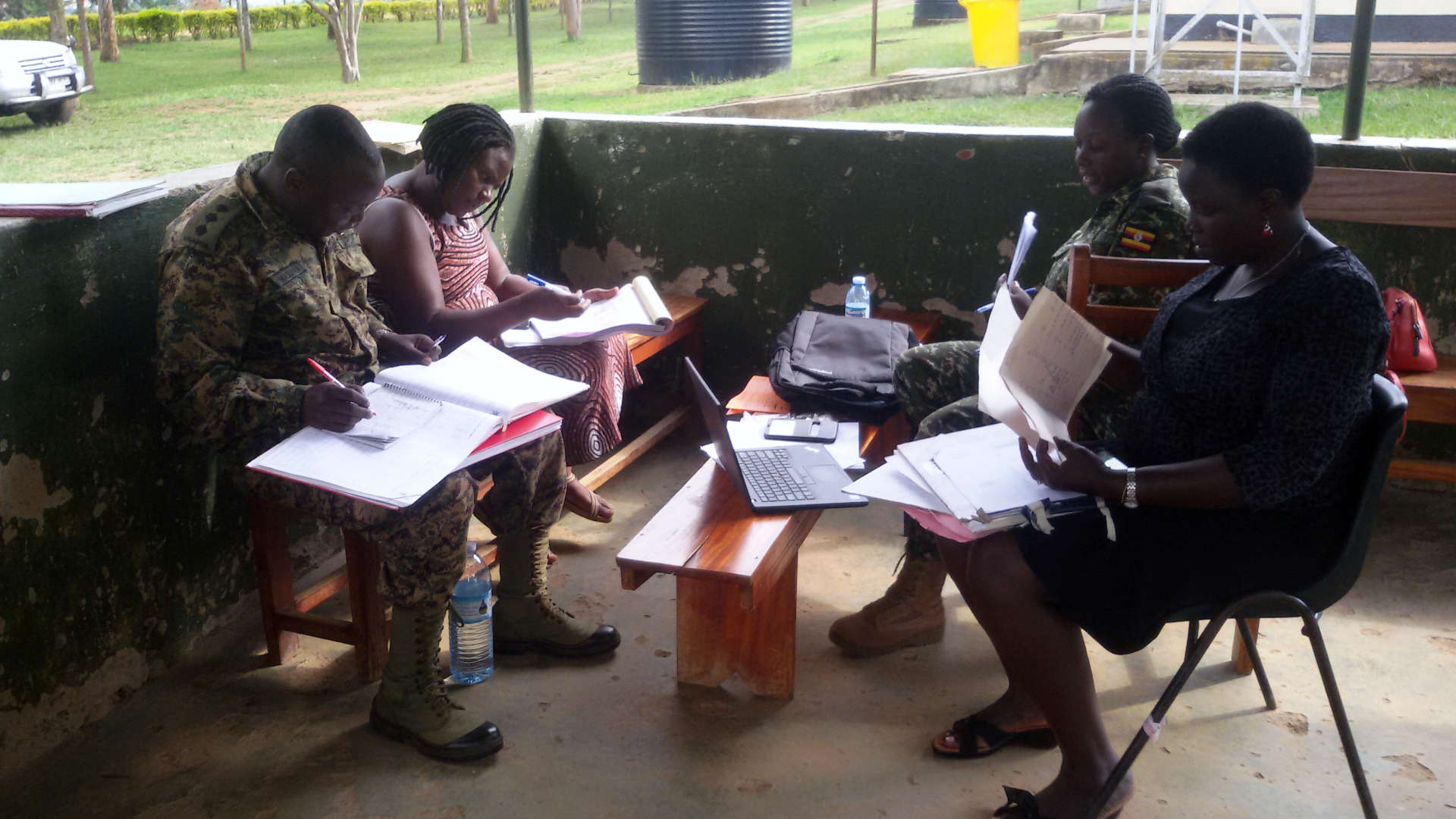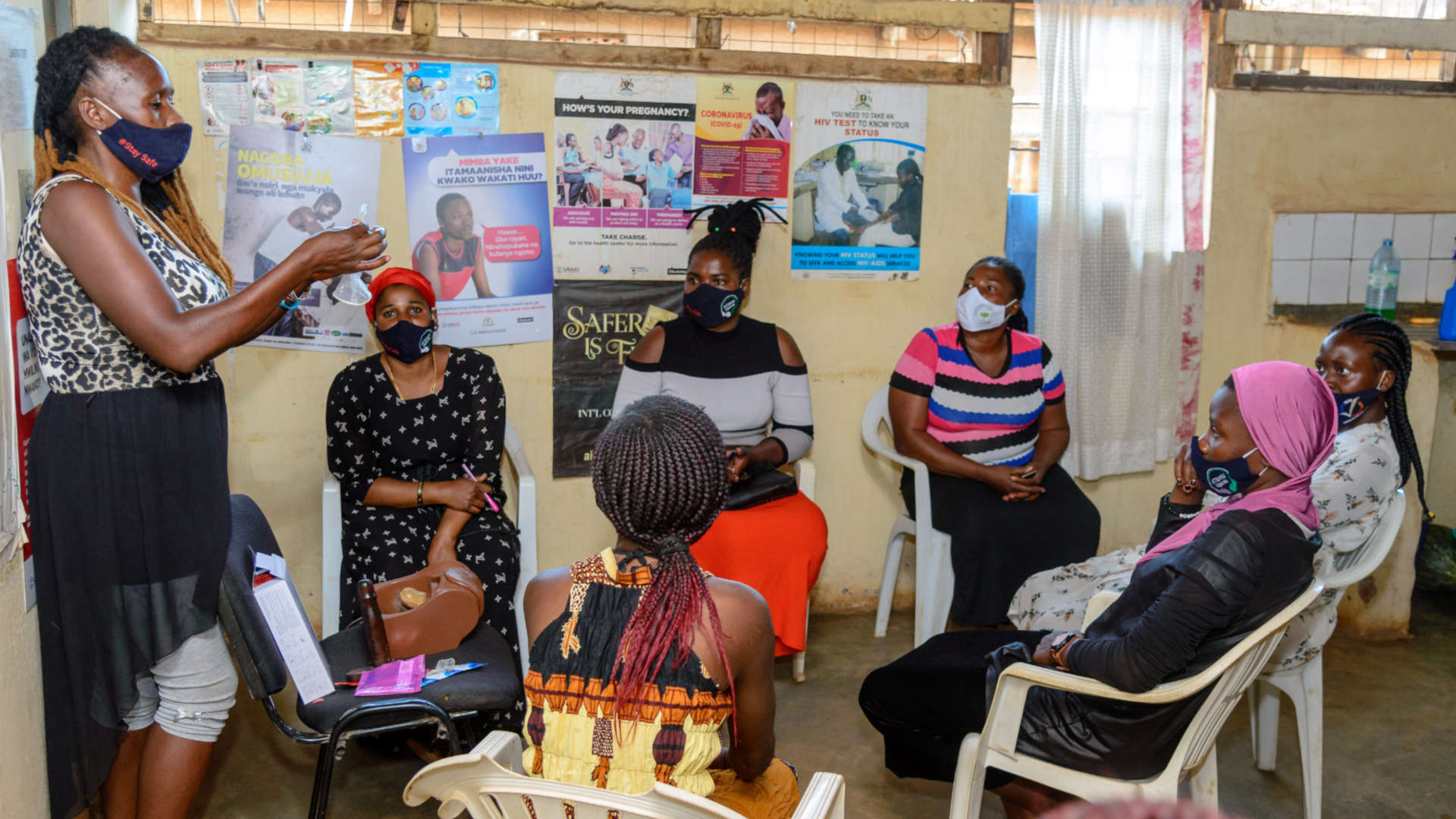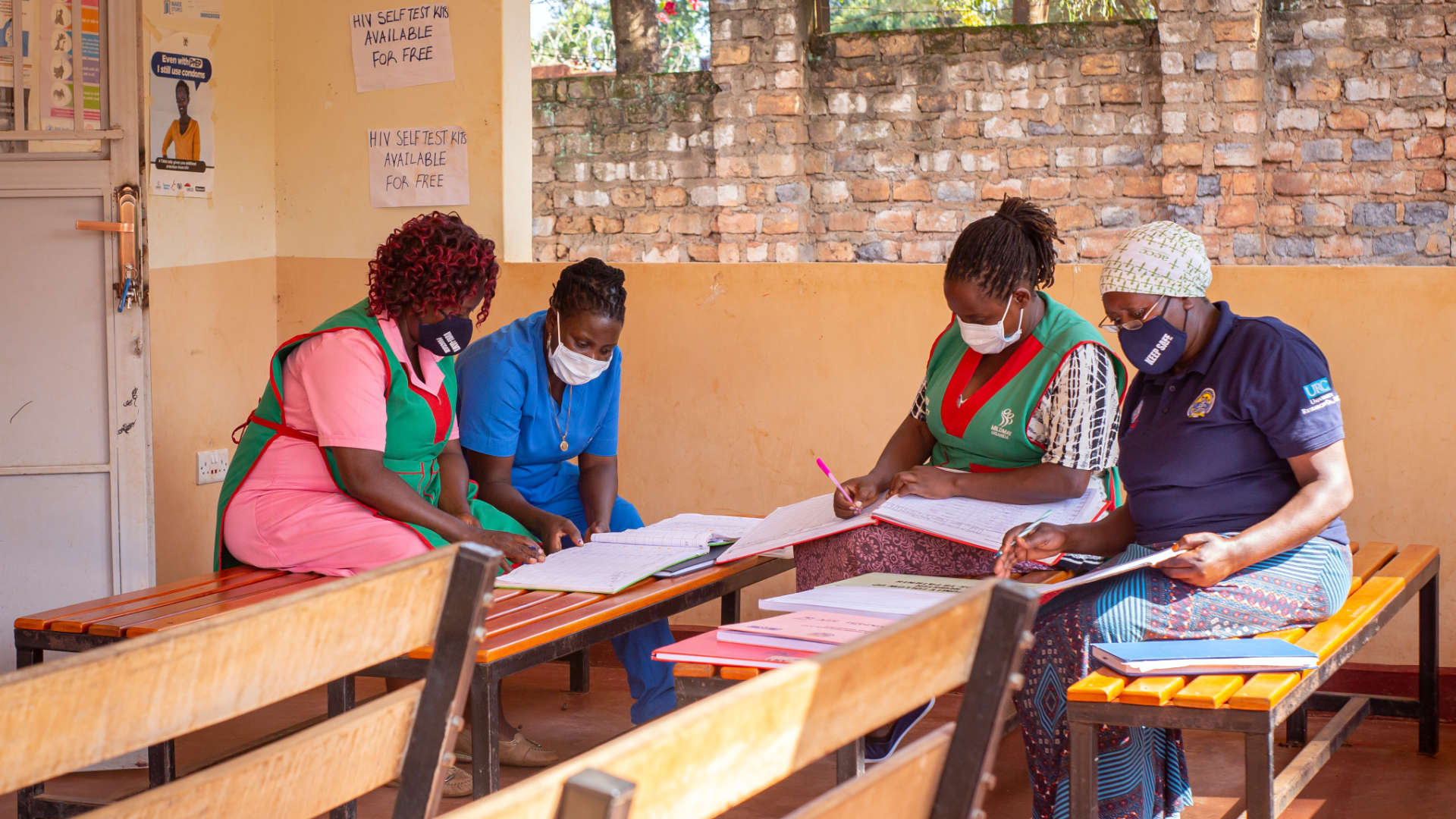Adolescent girls and young women (AGYW) are a priority group for HIV prevention services because of several risk factors that increase their vulnerability to the virus, including socioeconomic strain, behavioral factors such as having multiple sexual partners, gender-based violence (GBV), and harmful cultural norms such as forced early marriage.
Through the Department of Defense HIV/AIDS Prevention Program Uganda (DoD-Uganda URC Project), URC works with the Uganda People’s Defence Forces (UPDF) to implement the peer-led Determined, Resilient, Empowered, AIDS-free, Mentored and Safe (DREAMS) initiative targeting AGYW living within and around two military bases in the Gulu and Mubende Districts of Uganda.
The DREAMS partnership is a USAID-led HIV prevention initiative for AGYW ages 10-24 years to reduce HIV incidence, unintended pregnancy, and violence against women and girls in the highest HIV burden countries.
Targeting Risk Factors, Teaching Skills
Together with Gulu and Mubende Districts’ military leadership, health facility supervisors, peer educators, and community leaders, URC identified sites that could be used as safe spaces for the DREAMS partnership to mentor participants in small groups near military bases. At these safe spaces, female mentors regularly lead small meetings and trainings on topics including:
- Financial literacy;
- HIV prevention education;
- Life skills training; and
- Parenting training and social asset building to improve AGYW’s social skills and social safety nets.
“DREAMS participants receive a comprehensive package of interventions to reduce their vulnerability to HIV infection,” explained Lieutenant Francis Okello, DREAMS supervisor at the Gulu Military Hospital. “We also train them on basic financial literacy before we provide them with start-up kits for micro-enterprises or income-generating activities. We place the young women in groups of six to 10 participants and let them select an income-generating activity of their choice.”
Income generating activities (IGA) and micro-enterprise choices are proposed based on locality and district market surveys, and includes juice making, tailor and sewing, soap making, popcorn making, sales of agricultural produce, and raising pigs, goats, and poultry.
Mobilizing DREAMS, Mobilizing Communities
Lieutenant Okello added the UPDF, together with the DoD-Uganda URC Project, “provides support, mentorship, and technical guidance to DREAMS peer educators to ensure program success. We link the DREAMS peer educators to the hospital and facilitate strong community linkages by introducing them to community leaders.”
UPDF’s leadership mobilizes the community for DREAMS engagement and buy-in. Having peer educators supervised by a health worker attached to the Gulu Military Hospital also facilitates DREAMS participant linkages and referral for secondary health services.
The project also engages the military staff in charge of military barracks welfare in the initiative. These personnel have played a pivotal role in AGYW mobilization from DREAMS program enrollment to graduation, including taking a lead role in the distribution of IGA start-up kits to beneficiaries.
The UPDF is clearly taking ownership of this program. Its military leaders are invested in DREAMS. They monitor and supervise the progress of participants’ micro-enterprises, even helping to identify markets for their products.
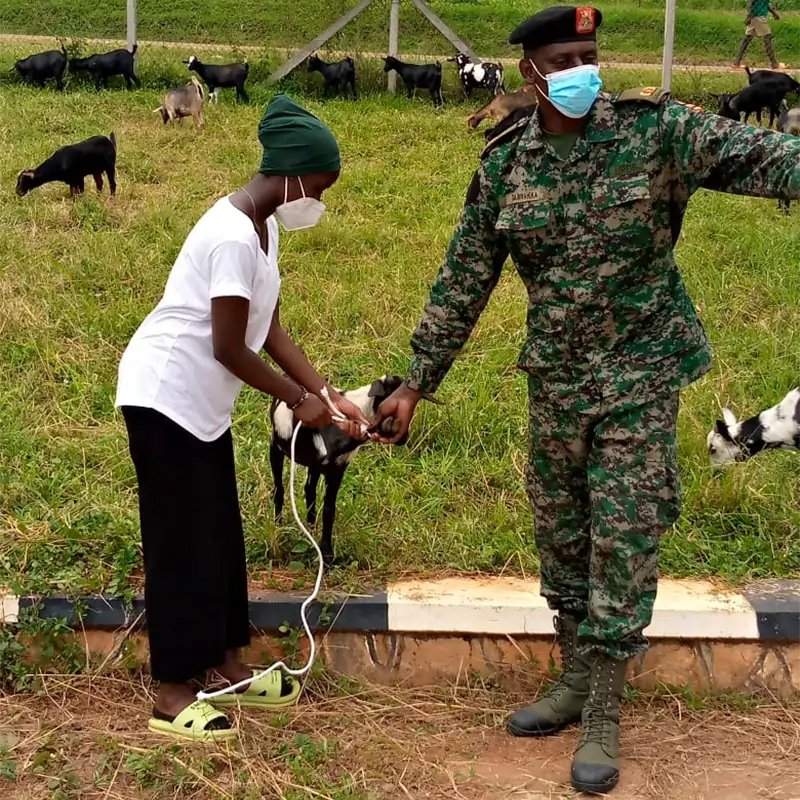
Preventing Violence and Vulnerability
Alongside business skills training, DREAMS holds weekly training sessions on topics including life skills, positive family relationships, violence prevention, and reproductive health for HIV prevention. Trainings use evidence-based models, including Stepping Stones and Sinovuyu Teen Caring Families Programme for Parents and Teens. Participants also receive HIV testing services and contraceptives to protect against sexually transmitted infections.
“My peers say that DREAMS has helped them handle their emotions and solve problems without fighting,” explained peer educator Winfred Ajono. “We have benefited so much. For example, we were taught how to make reusable menstrual pads so we can attend school without worry. We have learned how to save money, and one of the girls has managed to build a small house for herself. I have managed to pay my school fees.”
Program Reach
By the end of September 2022, 3,106 AGYW were enrolled in DREAMS from both districts, exceeding the program target of 2,929. Ninety-five percent of participants completed the program and 1,416 AGYW were provided with short term micro-enterprises through trainings and start-up kits.
The DoD-Uganda URC Project continues to engage DREAMS graduates through UPDF structures to monitor their continued resilience and empowerment.
Sustainable empowerment, we hope.
